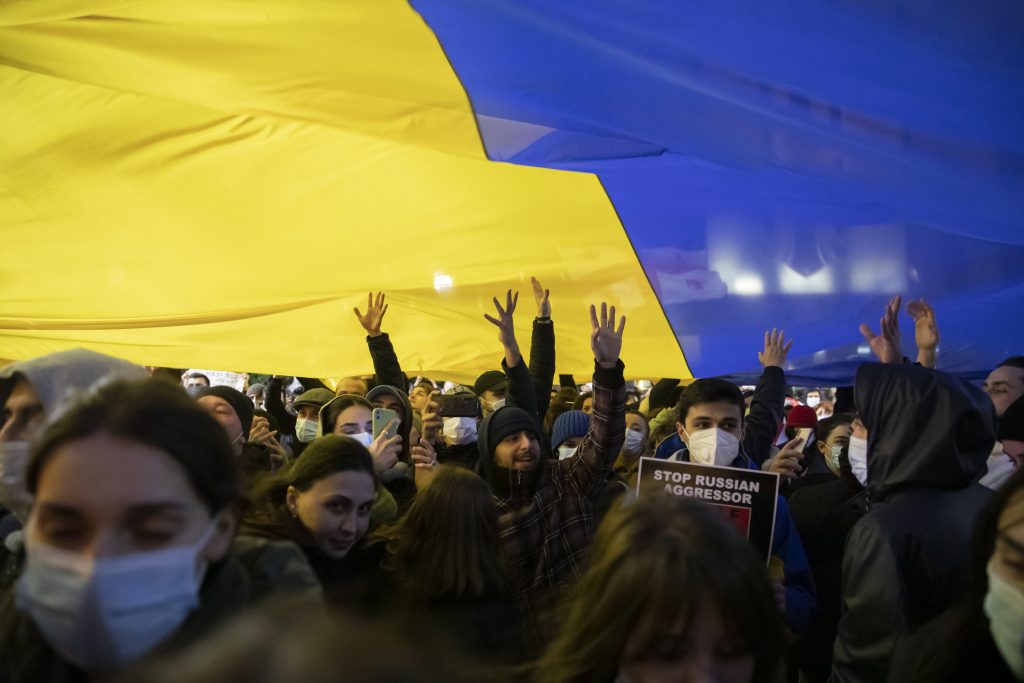German and U.S. Ambassadors to Georgia, Hubert Knirsch and Kelly Degnan respectively, have voiced expectations about Georgia’s stance on sanctions against Russia over its full-scale invasion of Ukraine.
“The EU invites its associated partners to join its sanctions,” the Georgian Public Broadcaster cited Ambassador Knirsch as saying on March 16.
“What this means concretely in the case of Georgia, what Georgia can do, and should do, is the subject of discussions that we are having with the Georgian government,” the Ambassador stressed
“I expect these discussions will move forward and come to results in the coming days,” he was quoted as saying.
Meanwhile, Ambassador Kelly Degnan stressed on March 17 that “no one is asking Georgia’s government to come up with bilateral sanctions if they do not want to, if that is not what they have decided they should do.”
“What is expected of every country, my country, and every country that is standing against this Russian aggression is that there will be compliance with the international sanctions regime,” she highlighted.
The U.S. Ambassador stressed it is important not to confuse the two issues, adding Georgia “is complying with international sanctions” and has always been a good partner” in this regard.
Noting that many of the Western measures against Russia may not affect the country directly, the Ambassador added that Georgia “will be complying with the international sanctions to the extent they can.”
“There are consequences for any country that does not comply with an international sanctions regime,” she stressed.
“I think that the key thing here is that we all are sending a unified message of support to Ukraine, and one of the ways to do that is by complying with the international sanctions regime,” the Ambassador added.
- PM: Sanctions Ineffective, Nobody to Stop Bombing of Kyiv
- Georgia Won’t Join Russia Sanctions, PM Says
Georgian Dream government officials have repeatedly rejected to participate in Western sanctions on Russia, arguing the move would bring any damage to Russia and would instead harm the Georgian populace.
In the latest, Georgian Dream chair Irakli Kobakhidze said on March 16 that “our position on sanctions remains unchanged and no one can make us alter this stance through any provocations, covert campaigns or foreign lobbyists.”
The GD chair pinned the blame on the governing party’s arch-rival, the United National Movement, for leading a “provocative campaign” behind the scenes to advocate for Georgia to join the sanctions.
The Georgian Dream government has received widespread criticism over its cautious stance and controversial rhetoric on Russia’s war against Ukraine.
PM Garibashvili has faced resignation calls, over his remarks that sanctions were not an effective measure and that there was “no one to stop the bombing of Kyiv.”
Meanwhile, Ukraine on March 1 recalled its ambassador to Georgia over immoral position” of Irakli Garibashvili’s cabinet on Russia sanctions and for refusing a charter flight to transport Georgian volunteers to Ukraine.
Also Read:
- Sanctioned VTB Bank Georgia Offloads SME Debt, Deposits
- Sanctioned VTB Bank Georgia Offloads Consumer Portfolios
- VTB Bank Georgia Hit with Int’l Sanctions
This post is also available in: ქართული (Georgian) Русский (Russian)

